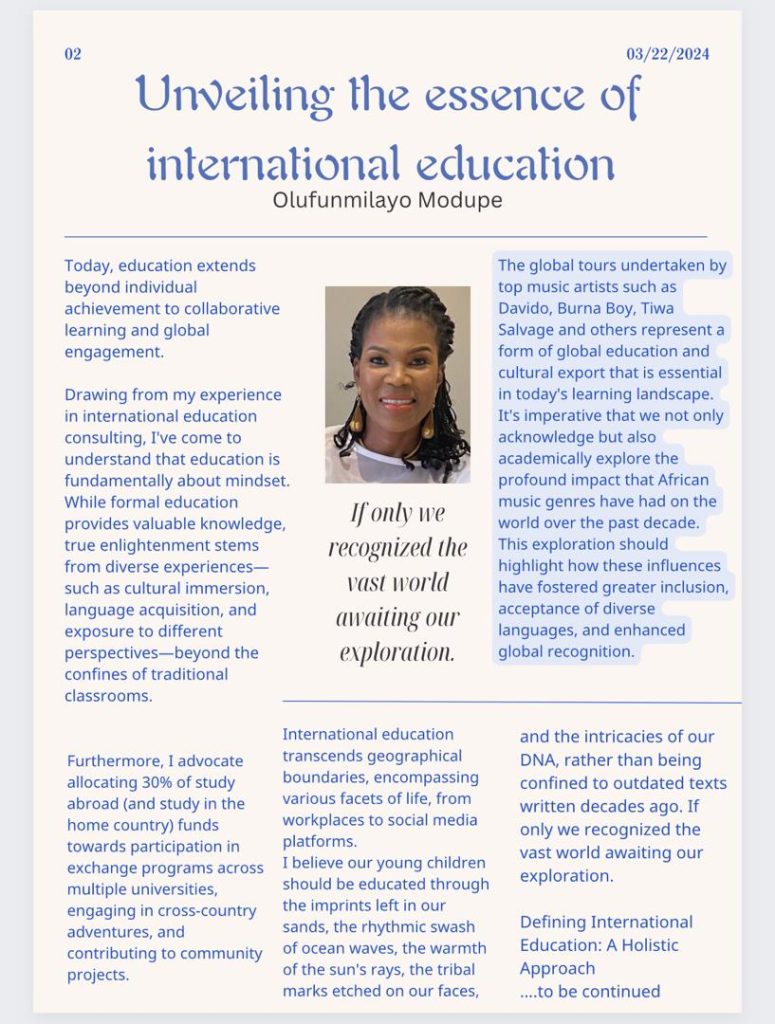Reimagining Education (part 2)
In Part 2 of the “Reimagining Education” series, I delve deeper into the design of international education and institutions, focusing on fostering inclusion and nurturing global citizenship among students. Here are some key points I’ll be addressing:

Global Citizenship
Embracing a global mindset goes beyond borders and encompasses a deep connection to humanity. Every student should aspire to become a global citizen, transcending nationalities and seeking knowledge and experiences from diverse cultures. It’s about expanding one’s horizons through education, travel, leadership, and embracing technological advancements. International education accelerates this journey towards global citizenship.
Equity and Access
Despite technological advancements and increased scholarship opportunities, access to international education remains a challenge. Issues such as funding, visa restrictions, and language barriers hinder the inclusivity of international students. The rising costs of tuition and the shift to hybrid learning further exacerbate these challenges. It’s crucial to address these barriers and strive for easier travel access, reduced educational costs, and improved welfare for international students.
The world will have truly progressed when students in advanced countries recognize the importance of seeking knowledge and experiences beyond their own communities. When they aspire to venture into the unfamiliar territories of developing nations, departing from their well-established systems with robust infrastructures and governments, that embodies the essence of international education.
Cultural Competence and Intercultural Communication Skills
Cultivating cultural competence and intercultural communication skills is vital for students in today’s interconnected world. Early integration of cultural training into curricula prepares students for effective interaction and collaboration in diverse environments, both domestically and abroad. Cultural competence forms the foundation of international education, enabling individuals to build meaningful relationships across cultural boundaries.
